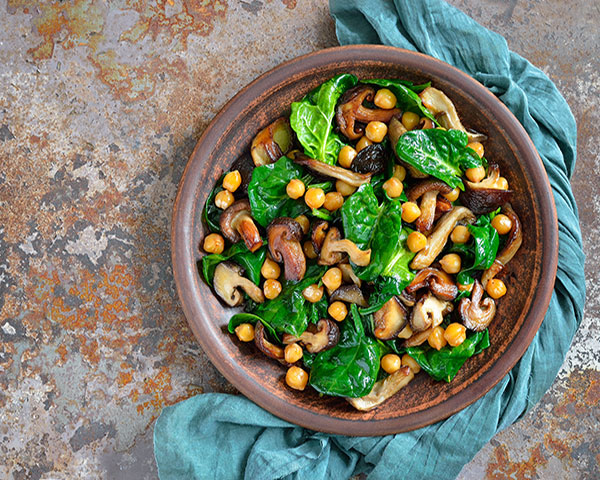Published at 2020, May 27th
Given the crisis we have been going through for several months now, ignoring environmental issues would be at best shortsighted, at worst criminal. Other tragedies are likely to result from ecological degradation, including a food crisis, which is widely feared because of the direct impact it could have on our very survival. In August 2019, the IPCC report recommended radical changes in the behavior of economic and political actors as well as citizens in order to limit global warming to less than 2 degrees. The shutdown of part of the world economy due to COVID-19 will have had at least two positive effects: it has allowed our planet to breathe for a while and has raised public awareness!
The first change in behavior must be in our eating habits, since they have such an impact on environmental and societal issues. On the occasion of the publication of the Louis Bonduelle Foundation’s new white paper, Céline Mayaud, Corporate Communication Manager at Bonduelle, explains how food and sustainability can go hand in hand.
The environmental and climatic implications of our dietary habits
Our current diets are predominantly meat-based and are based on food systems with a large ecological footprint. By “food systems”, we are referring to the entire value chain involved in the products we consume: the organization of agricultural land, the technologies used, the packaging, storage, distribution of food products, etc. Overall, from start to finish, the level of greenhouse gas emissions stemming from our food supply is extremely high, accounting for no less than 25 to 30% of the total!
Our food systems damage the quality of the air we breathe, due to fine particles, dust and animal excreta resulting from the processes involved. But their ecological footprint doesn’t end there. The degradation of water and soil, which are themselves the basis of a healthy biodiversity, is also lamentable.
Protecting living soil is all the more important as it plays a key role in the absorption of CO2. In addition to the long-term negative impact on crop yields, their degradation therefore also directly exacerbates climate change.
However, awareness should not be limited to environmental issues alone: global warming risks aggravating not only the undernutrition currently experienced by 800 million people worldwide, but also malnutrition, as it will be difficult to avoid an inflation in crop production costs.
We cannot turn a blind eye to the increased risk of serious food insecurity facing many people around the world. It is urgent that we change our food system because it is not currently sustainable. While livestock farming remains an essential component of agricultural production, excessive consumption of animal proteins is not sustainable in the long term. The resources that our planet provides will not be enough to feed the 9.7 billion people that we will be in 2050 on such a basis.
A sustainable plant-based diet
Over three years of study, the EAT-Lancet Commission, composed of 37 experts from 16 different countries, addressed the challenge of how to feed humanity in a healthy and sustainable way. Many factors were taken into account, such as climate change, biodiversity and water, among others. The conclusions are unanimous: the “ideal plate” needs to be composed primarily of fruits and vegetables, wholegrain cereals, legumes and nuts.
Thus, by its very nature, a sustainable diet implies an increased consumption of plant-based products. In addition to being a source of many nutrients and proteins and having a lower environmental impact, plants offer an extraordinary diversity of tastes, textures and colors, between fruits and vegetables, cereals, roots and tubers, legumes, oilseeds, etc.

The United Nations has set out the defining characteristics of “food sustainability”: its low environmental impact, its contribution to food and nutritional security, and its sustainability for future generations. Overall, “sustainable diets contribute to protecting and respecting biodiversity and ecosystems; are culturally acceptable, economically equitable and accessible, affordable, nutritionally safe and healthy, and optimize natural and human resources” (FAO).
Flexitarianism, for example, could address these different challenges, as it is a diet largely composed of plant-based products. Animal proteins have their place, but in more reasonable quantities than in today’s widely accepted food systems.

This type of diet is beneficial due to its reduced impact on the environment, as demonstrated by the consulting firm Solagro who analyzed the correlation between environmental impact and the quantity of meat consumed in various diets. In addition to resulting in an improvement in terms of Recommended Dietary Allowances (RDAs), a change to our current dietary habits as basic as reducing the proportion of animal protein we consume could also reduce greenhouse gas emissions by as much as 13%!
Sustainable food also seeks to address a fundamental challenge: feeding the whole of humanity. A diet mainly based on plant-based products makes it possible to imagine, thanks to the optimization of the resources at our disposal, the end of food vulnerability and insecurity.
In practical terms, where can you find the necessary tools to help you change your diet?
The Louis Bonduelle Foundation’s new white paper has set itself the ambitious goal of providing an answer to this important question, given that the issue of eating habits is such a deeply rooted component of our cultures. The aim is thus to raise awareness of these issues among all those concerned and to outline a range of steps that people can take to move towards a more plant-based diet.
Rome was not built in a day and eating habits cannot change overnight. Consequently, the shift will be gradual. It is essential to educate everyone about the impact of their consumption choices on the environment.
Raising awareness to promote improved eating habits requires education on sustainable nutrition, beginning in childhood. Designed and developed by the Louis Bonduelle Foundation for younger audiences, this book is a wonderful educational resource.
Choosing sustainable food is a genuine act of civic commitment in favor of the planet. The flexitarian diet, essentially made up of a combination of vegetables, legumes, and wholegrain cereals, fulfills the dual purpose of satisfying Recommended Dietary Allowances and reducing one’s impact on the environment. The Louis Bonduelle Foundation’s new white paper offers some initial suggestions, emphasizing in particular the importance of raising awareness of this approach to eating from an early age. Tomorrow’s eating habits are being shaped on our children’s plates: let’s not miss this opportunity to make a lasting change!

